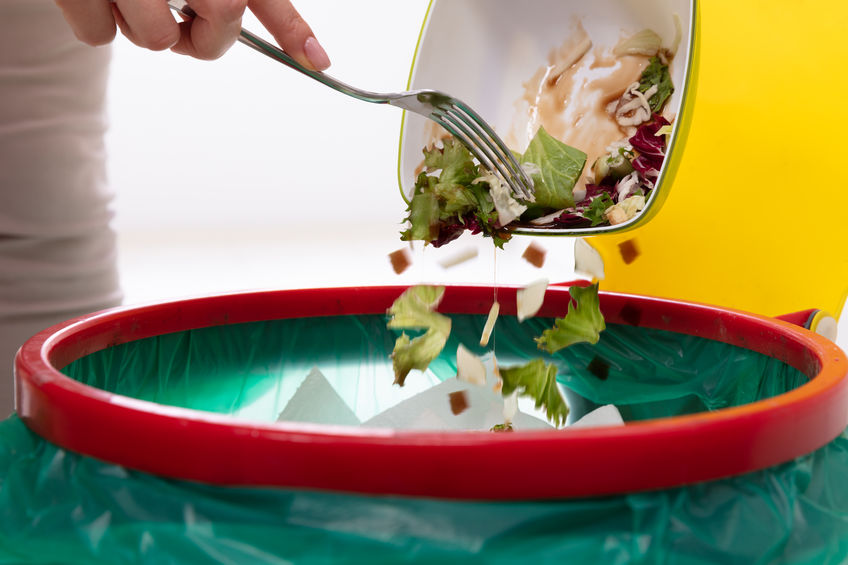The Size of the Domestic Food Waste Problem
Imagine something ludicrous! Imagine an area the size of China was being used to cultivate food which went straight in the bin. Actually, change that. Image all that food was processed, shipped by air or sea, sent to retailers, THEN and only then, thrown in the bin as domestic food waste.
The truth is, you don’t have to imagine it – because it’s what actually happens. One third of all food produced doesn’t get eaten. Of that, in the UK, almost 70% of the waste takes place in our household kitchens.
There’s a massive impact of all that domestic food waste. Almost one tenth of our global carbon emissions come from all that unwanted food.
Good News
Here’s the good bit. Lots of people ask me what changes they can make which will reduce their carbon footprint. If you change reduce the amount of food you send to landfill, you can have a massive impact. Not only that, you will make savings because you’ll be spending less on your food bills.
Three Easy Things You CAN Do to Reduce Your Domestic Food Waste and
Your Food’s Carbon Footprint
Mike Berners-Lee highlights three things you can do in David Attenborough’s YouTube documentary Climate Change – The Facts, which is well worth watching. I’m going to put a little more meat on the bones (no pun intended) of Berners-Lee’s headlines.
-
-
Eat What You Buy
(a) Get in the habit of thinking ‘Do I need to put this in my basket?’ Be aware of what’s in your fridge and cupboards and resist the temptation of BOGOFs (buy-one-get-one-free) which you will never eat.
(b) Know the difference between ‘Best Before’ and ‘Use By’.
‘Best Before’ – generally a fairly arbitrary date on dry goods, cans and things which don’t go off in a hurry. There are, in fact, calls within the industry to change the food date labelling system.
‘Use By’ – these are dates on more perishable foods, including meat, fish and dairy. The article suggests that even these are too stringent, resulting in potentially 250,000 tonnes of unnecessary landfill.
(c) If you don’t finish what’s come from the can, put it in the fridge in a bowl for the next day. Plan how you are going to use your left-overs. Fresh soup is always popular in my house and I tend to throw in all the veg which looks slightly less than 100% desirable.
(d) What you’re not going to eat, give away using food sharing app Olio. -
Eat Less Meat – especially beef and lamb
I’m not suggesting becoming a veggie or a vegan. What I’m advocating is what’s become known as the Flexitarian diet. Why beef and lamb? These animals ruminate while chewing the cud and as they do that, they burp methane, a green house gas which is 21 times more potent than CO₂.Even the carbon counting guru Mike Berners-Lee admits to enjoying the odd steak now and again. Just like me.
-
Buy Local and Choose Ship Freighted, not Air Freighted
It’s not always easy to buy local, and let’s be honest, harder to know whether fruit and veg is flown to the UK or comes by ship. Let a bit of common sense prevail here. If food comes from Brazil or Costa Rica, it’s probably out of season in the UK and arrived by plane.
-
The Fourth Thing is the Most Important
There’s actually FOUR things you need to do to reduce your household food impacts – and the fourth comes first!
Here goes! It’s: Make the decision to actually do something and not just think about it.
The other three things will follow – they are the ‘What’ or ‘How’.
More Good News
There’s evidence of some good practice already happening, so if you start to reduce your own domestic food waste, you’ll be in good company. There has been around 7% reduction in foodwaste in the UK between 2018-2015, with a saving of over £85m of food (53,000 tonnes).
It’s a great start, but there’s still a long way to go.
Addressing Food Waste in the Food Industry
Michelle works with companies in the Food Sector to help them understand where they can make savings by reducing food waste throughout their processes. The Plan also evaluates other areas of environmental impact, such as energy and water reviews, sourcing and supply chain.
To find out more about how Coral Mountain can make reducing environmental impact a tangible benefit to your organisation, contact us for an informal, friendly, initial conversation.


Recent Comments